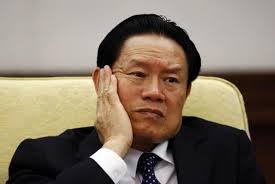 The government of Pakistan is preparing a list of serious tax crimes to be declared as predicate offences under the Anti-Money Laundering Act 2010. A total of 26 offences have been outlined so far, connected to sales tax, income tax and federal excise duty. Making tax crimes predicate offences to money laundering is one of the Financial Action Task Force‘s 40 Recommendations as of 2012.
The government of Pakistan is preparing a list of serious tax crimes to be declared as predicate offences under the Anti-Money Laundering Act 2010. A total of 26 offences have been outlined so far, connected to sales tax, income tax and federal excise duty. Making tax crimes predicate offences to money laundering is one of the Financial Action Task Force‘s 40 Recommendations as of 2012.
As of July 1 2013, tax crimes are predicate offences to money laundering in Singapore. The Monetary Authority of Singapore guided financial institutions to ‘develop, implement and enforce internal policies, controls and procedures that effectively detect, and deter the laundering of proceeds from wilful or fraudulent tax evasion through the financial system.’
The new guidance placed enhanced due diligence requirements on all ‘clients assessed to present high risk of wilful or fraudulent tax evasion.’
In March 2013, the Private Banking Industry Group’s issued the Industry Sound Practices (see Addendum 1, p 29), to ‘safeguard the industry from being used as a platform to harbour proceeds from serious tax crimes, or as a conduit to disguise the flow of such funds.’
Among the firm’s responsibilities is to communicate that clients are responsible for their own tax obligations and assess the bona fides of clients, carefully evaluating the tax-related risks both when taking on a client and via continuous monitoring
Red flags for when to apply EDD to a client and account include:
- Client requests for holdmail services without satisfactory reasons. Clients can ask a bank to receive correspondence relating to their account. The mail is held for them until they return to the jurisdiction. The service allows a level of privacy or secrecy which the Singapore governmnet n
- Use of complex structures
- Non-face-to-face business relationships
- Negative tax-related reports from media or other credible information sources on the client or on client’s jurisdiction of domicile or tax residence
- Any additional parameters that a Covered Entity considers pertinent for conducting its risk assessments and due diligence checks.
The Industry Sound Practices also includes a ‘non-exhaustive’ five step process for EDD, including screening adverse or negative news, questioning the source of funds, using information from other financial institutions where legally possible, identifying the beneficial owners.
This guidance was targeted to the private banking sector, some of whose clients have been used to evading taxes and may be less inclined to reveal more details about the source of their wealth as private banking is notoriously discreet and protective of its wealthy benefactors. There was some concern that clients who had traditionally banking in Singapore may begin to move funds to jurisdictions with less rigorous counter-tax crime regimes.
If any readers have seen changes within Singapore, or heard of a client exodus, do please drop me a line.







